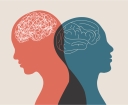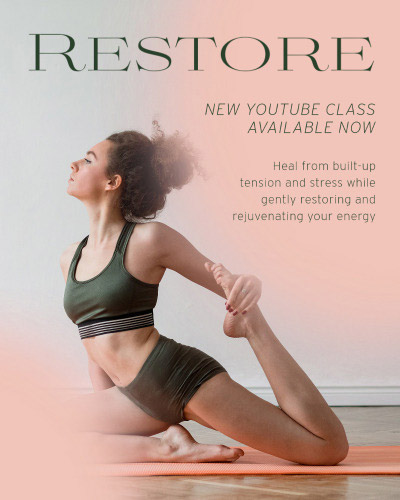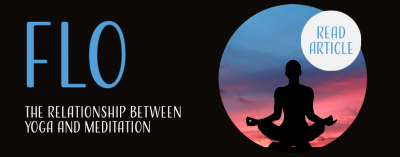Knowing your limitations - Facing Fears

A recent ABC program "Old People's Home For 4 Year Olds" illustrated the limitations people can place on themselves.
A telling point was an old lady battling with her own limitations, strongly recommending a fellow resident not to take the step down to the water. Alarmingly the step was about the height of a gutter. The question has to be asked - how did the residents develop such a sense of disempowerment? Is it their injury or is it the relationship they develop to their injury?
The Mind of the Soul Gary Zukav
Every frightened part of your personality is a moving object in a sense that it thinks, speaks and acts in frightened ways until your challenge it.
You challenge the frightened parts of your personality by choosing where you will put your attention.
One of the major components of happiness is something to look forward to.
The thing you think you cannot do - Gordon Livingston MD
Can an injury increase your anxiety and fear?
You dont have to travel far to see someone "hobbling down the street" with an injury, a limp, a lop-sided walk. How many of those injuries are an attachment? By attachment, the injury has been so etched into the lifestyle of the person that they have no intention of getting it fixed.

The Paradox of Control
The flow (optimal) experience is typically described as involving a sense of control. In the book Flow by Mihaly Csikszentmihalyi he describes a study indicating those achieving a sense of flow during risky activities had a sense of joy, not in the danger itself, but in their ability to control the risks.
This sense of control is highlighted in the video of Nathan Florence "HEAVY PADDLE OUT ATTEMPT AT HUGE SCOTTISH REEF SLAB".
There is absolutely no way he is not feeling fear. How does he mitigate that fear?
One explanation could be-: He knows there is a bay down the way (at least a km away), which could act as an escape route should it go pear shaped.
He may know that no matter how hard surf pounds in to rocks it has an equal force back out as the water must come back out somewhere.
His fitness level would be very high, and his ability to escape should he not make the drop on one of the "slabs" is well known. Being a surfer from Hawaii, he is able to handle the fear in large ocean swells. He has been exposed to dangerous ocean situations previously. It changes your brain’s physiology to face your fears, especially in doses you can handle without getting completely overwhelmed.
But still, few surfers would do this-:
Choice Theory and Control
The basic tenet of Choice Theory is to promote self-control so that individuals can increase their ability to make and act on responsible choices. Internal Control processes – the alternative to stressful, controlling external processes. Based on the simple premise that every individual, only has the power to control themselves and has limited power to control others. Like the surfer who controlled his own fear, Choice Theory teaches participants to control what they can control within themselves.
Holistic Healing
Many holistic health practitioners will take a different approach to healing. A common comment from a teacher in a Yoga class could be "Your hips store your anxieties".
The amygdala is commonly thought to form the core of a neural system for processing fearful and threatening stimuli, including detection of threat and activation of appropriate fear-related behaviors in response to threatening or dangerous stimuli. Thus, it is a natural candidate for a neural structure that could modulate the emotional responsiveness of face processing areas in the brain. Indeed, humans with amygdala damage tend to be impaired in recognizing emotional facial expressions, especially fearful ones.
Facing the role of the amygdala in emotional information processing
People suffering from high anxiety have an amygdala that's always in the starting blocks, ready to go, ready to signal danger, and in doing so it activates the body's stress response.
Dr Anders Hansen - The mind-body method
Refer article: The Brain's Fear Engine: Exploring the Amygdala's Role
Holistic Counselling
A holistic counsellor may try to understand the underlying cause of an injury or an ailment. If you are lucky enough to find a counsellor who is also a practising naturopath you may find a treatment or change of diet you were not expecting cures your issue.

Attachment
Many traditions discuss the topic of attachment. Attaching to our fears and ailments can prevent us from seeking a cure.
Passive Aggression
Passive Aggression is often a resentment of the control somone has over you. Is this a form of fear?
The first step is to identify what you are dealing with to avoid getting dragged into the "passive aggressive conflict cycle" where you start responding in the same passive-aggressive manner as the instigator.
What is limiting you?
We started with the title of "know your limitations" - however a conclusion may be "what is unnecessarily limiting you for a happy healthy life". Psychology may be able to help you learn to heal yourself.
Originally published 31 Oct 2019.
SEARCH ARTICLES
advanced search tips examples: "Yoga Meditation" Therap* +Yoga +MeditationRecent Posts

Nov 27 2025
The Psychology Behind the Primacy Effect

Jun 24 2025
Microplastic Exposure: Bottled Water vs Tap

Jun 09 2025
Squats for aligning hips

Apr 29 2025
Creative Thinking

Jan 28 2025
How to talk to someone you disagree with

Jan 27 2025
Alcohol Causes Cancer

Jan 14 2025
The role of the Amygdala

Oct 04 2024
A Support Guide for Anorexia Nervosa

Jun 25 2024
Sleep better




